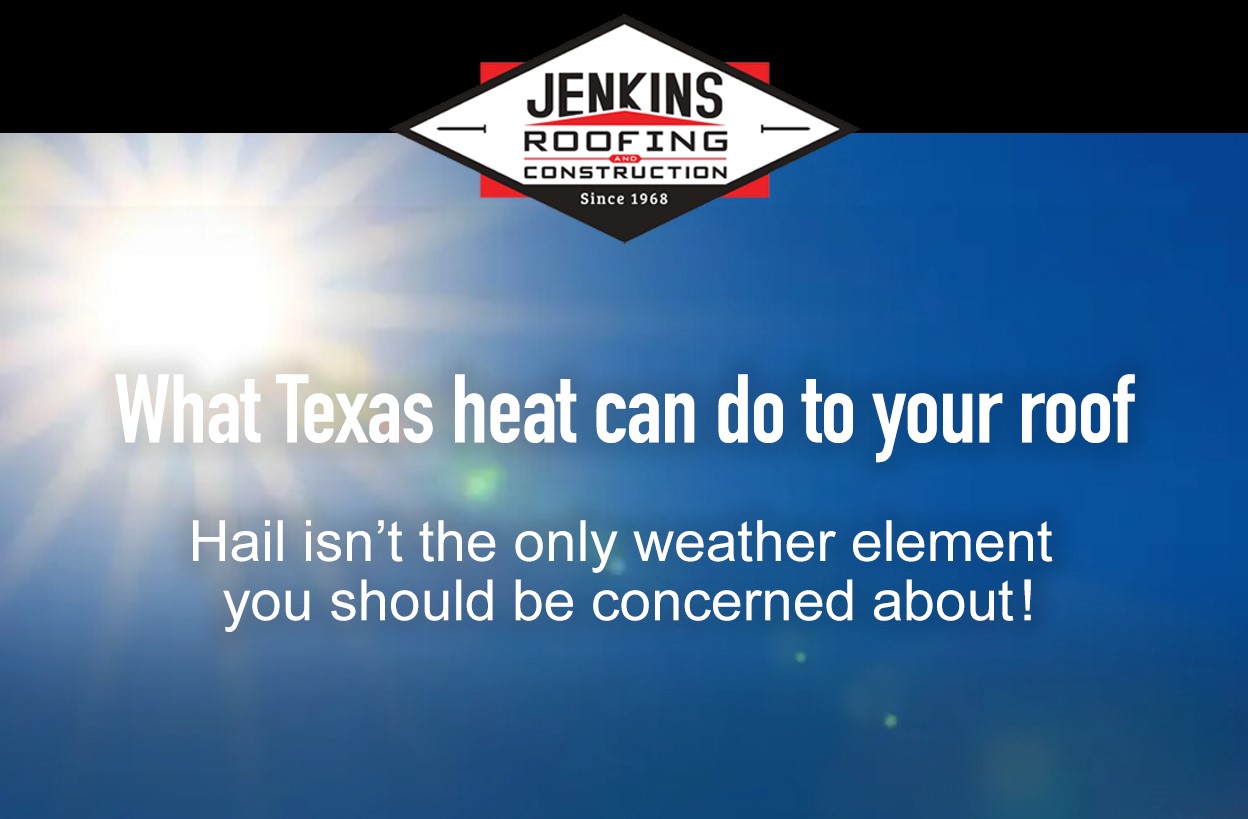What Texas Heat Can Do To Your Roof
Posted on July 1st, 2023 in Roof Maintenance and Repair

Hail Isn’t the Only Summer Weather You Should Worry About
Texans love their state. And with good reason; it’s a great place to live, work and raise a family.
But even the most loyal residents must admit the summer months can be brutal. Hailstorms are a big threat; a few minutes of golf ball-sized ice pellets hitting your cars, home or landscaping can be devastating. The bigger problem, however, may be the heat. With the Texas sun beating down relentlessly and temperatures on the rise, homeowners need to be aware of how all that heat can damage many components around your home – especially your roof.
Here are some of the ways heat can hurt:
Thermal Movement
Extreme heat can cause your roof to expand and contract, which can lead to cracks and gaps in the roofing material. In this case, it’s the combination of rising and falling temperatures that can cause the problems.
UV Radiation
High summer temperatures usually mean higher levels of harsh UV radiation. For most roofing materials, this leads to both decomposing of the structures and a fading or discoloring effect. Prolonged exposure might also weaken the surface of your roof and make it more porous over time.
Shingles
The heat can cause your shingles to curl and crack, creating more open spaces which can lead to leaks and other problems.
Old Age
Another thing to keep in mind is the age of your roof. Most roofs last between 15 and 25 years, depending on the material and quality of installation. If your roof is approaching the end of its lifespan, it may be more susceptible to heat damage. If this is the case, you might want to consider a replacement. While this can be a significant investment, it’s important to remember that a new roof can add value to your home and provide peace of mind for years to come.
Here’s one more thing to take into consideration: If you have a flat roof, the Texas heat can cause even more problems (and cost you more money). Flat roofs are more susceptible to damage from the sun’s UV rays, which can cause the roofing material to break down and deteriorate faster than other types of roofs.
Minimizing Damage
Your roof is, and always will be, exposed to the weather; there’s nothing you can do about that.
But there is a lot you can do to minimize problems and/or keep a hot roof from causing further structural damage on or in your home.
Regular Inspections
The best thing you can do to minimize damage to your roof from the Texas heat is to schedule regular inspections. This will help identify any issues before they become major problems and save you a lot of money in the long run. Of course, the best way to handle inspections is with an experienced, local roofer with the state’s best warranty – Jenkins Roofing and Construction.
Timely Maintenance
In addition to regular inspections, it’s important to keep an eye out for any signs of damage or wear and tear on your roof. This includes things like missing shingles, leaks or cracks in the roofing material. If you notice any of these issues, contact a professional right away (like Jenkins) to prevent further damage.
Add Protections
Some homeowners choose to invest in reflective roofing materials or coatings to help reduce the amount of heat absorbed by your roof. The color of your shingles could be a factor, as well. All of these can help your roof last longer. And these protections come with a bonus: They can help keep your home cooler and your energy bills lower.
Let Jenkins Help
As a third-generation roofing company dedicated to doing things right, Jenkins Roofing and Construction can answer all your questions about heat, sun, roofs, repairs, replacements or almost anything else related to protecting your most valuable investment – your home.
To schedule your free, no obligation roof inspection, just click here or call (817) 886-6710.